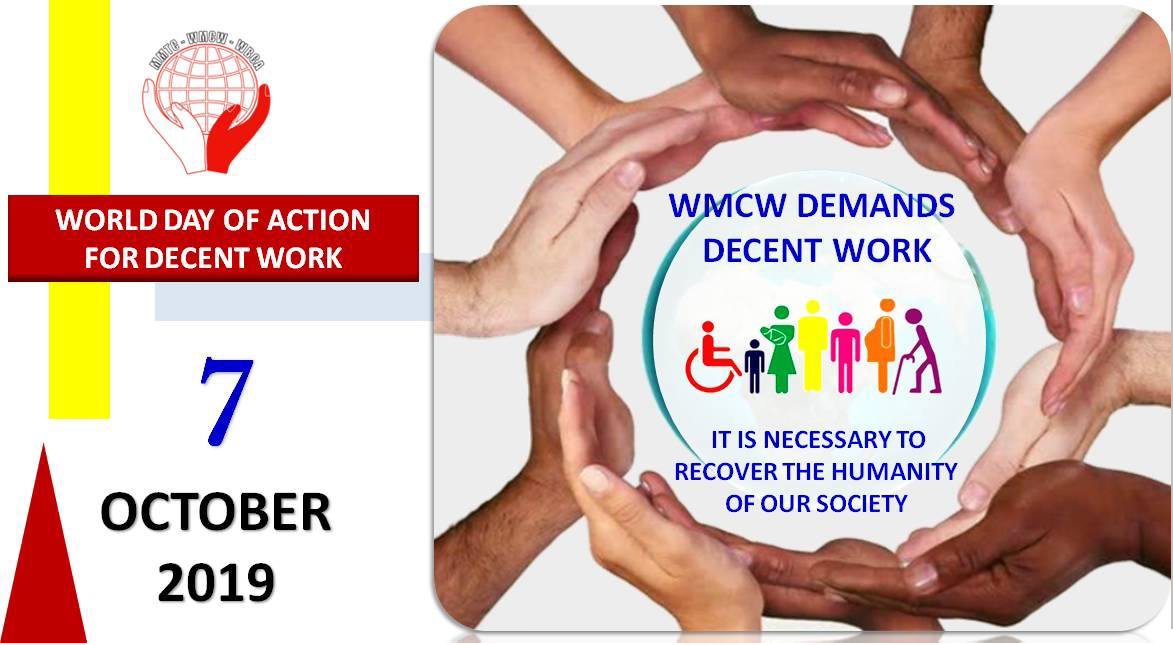
According to ILO(1), in 2018 the majority of the 3,300 million people employed in the world suffered deficits in material well-being, economic security and equal opportunities, and lacked sufficient margin for human development. In 2016, 61 per cent of the world's working population was in informal employment. By 2018, more than a quarter of workers in low- and lower-middle-income countries were living in extreme or moderate poverty. There were also 172 million unemployed people in the world (unemployment rate 5%). By 2020, 174 million people are expected to be unemployed.
For the Social Doctrine of the Church (SDC), work is a fundamental right of every person, it is a good and everyone has the right to decent work. The SDC defends the primacy of labour over capital as a fundamental principle. The rights of workers and their families are the criterion from which human work should be organised, the conditions in which it is carried out and, in reality, the whole economy.
Work is a personal value. It is always a person's activity that can be accomplished through their work. It is essential to recognize and promote the person who works to be protagonist.
Work is a social value for the mere fact that the person is not an isolated individual. Work is a basic area of service to others with what the work produces, it is a suitable area for exchanging the various qualities and capabilities of people, human relationships, etc ...
Work is also a family value. For the SDC this should be one of the most important points of attention when determining what work should be like, as it should make family life possible.
Associated with decent work, there are a series of personal, family and social rights that cannot be renounced in order to build human societies:
- The right to work and to a fair remuneration for it.
- The right to decent working conditions and working environments that do not threaten the life of the worker.
- The right to the protection of one's own personality in the workplace.
- The right to rest.
- Right of assembly and association.
- Right to social benefits.
- The right to collective bargaining and to strike.
- The right to participate in the ownership of the company.
- The right to participate in the organisation of work.
These rights are associated with personal, social and State responsibility. Overcoming the violation of rights associated with work, there is only one way: to recognize the primacy of people over things, of work over capital. Recognizing this requires a new political rationality that puts states to organize society in order to serve the most impoverished workers, justice and all citizens. This political rationality needs: Conscious citizens. That they are capable of detaching themselves from the neoliberal values nourished by capital, developing fraternity. This concern and compassion for our most needy brothers is what truly humanizes us.
States and institutions that direct economic resources to the service of the impoverished and decent work. There is enough wealth to do this. According to some experts, applying a rate of 0.2 per cent on the total of global financial transactions would finance the totality of global public expenditure, practically without the need for additional taxes.
The WMCW, on this 7th October, demands this commitment from States and the institutions that govern us to build truly human societies, where the goods and wealth generated are at the service of the common good. This is the aim of the activity of all the movements that are part of WMCW.
We encourage all citizens and workers to support in each country the demand for decent work for all on this 7th October.
WORK IS FOR LIFE, FOR THE DEVELOPMENT OF OUR HUMANITY.
Message developed by the HOAC Movement - Spain
---------------------------------------------
(1) In the document "World Employment and Social Outlook. Trends 2019".
Link: https://www.ilo.org/wcmsp5/groups/public/---dgreports/---dcomm/---publ/documents/publication/wcms_670542.pdf
See also: WMCW Prayer for Decent Work (October 7th, 2019)




